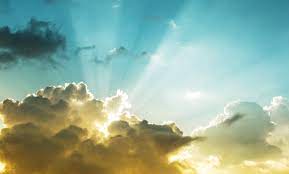The Restoration of Isra’el
35: 1-10

As bad as the second woe was for Judah in the day of Isaiah, it provided the hope of redemption for the sinful nation (to see link click Fq – In That Day, the Deaf Will Hear the Words of the Scroll). Here, then, is the climax, expressed in one of the most beautiful Hebrew poems ever written. In a brilliant contrast, this chapter stands out against Chapter 34. While Edom is a continuous burning wasteland during the Millennial Kingdom, Isra’el will be restored to a garden of beauty. Just as Edom in the previous chapter represented the nations in general, so here the desert represents the entire world: physical, social, and spiritual, which, human arrogance having destroyed, ADONAI in His grace, restores. Whereas trusting in the nations results in a desert in the latter, trusting in God results in a garden here.
Two comings are described in this chapter: the coming of the LORD to His people, and the coming of the people to ADONAI’s holy city, Zion or Jerusalem. Both are necessary, and this is the proper order. We humans have made our world into a desert and are helpless in it. We can feel that there is a God to whom we are accountable, but we don’t know who or what He is. All our attempts to reach Him or even describe Him flounder. If ADONAI is only humanity, then He is just as much in the dark as we are, and just as unable to change His moral behavior. That is the way of the desert. But the LORD is radically different than we are, and that means we can never know Him unless He comes to us first. He must take the initiative both to disclose Himself to us and then to deliver us from the desert into which we have condemned ourselves. We are helpless, both in our ignorance and in our sin. This is some of the meaning of the deceptively simple statements with which the gospel of John opens (John 1:1-5 and 14).122
With this we have reached another resting place in our journey through Isaiah’s vision. And as we pause and catch our breath, where do we find ourselves? At home, joyful and at rest in the presence of God. It is where we long to be, and the only place where we will ever be totally content to stay. For we too are exiles (First Peter 1:1-2), and our hearts cry out for home (Second Corinthians 5:1-9). We cannot save ourselves, but the way has already been raised up for us, and we have already set out on it. Like the prodigal son, we are on the way home, but we know far better than he did the welcome that awaits us. And this part of Isaiah’s vision is like a refreshing oasis on the way, where we can pause and gather strength for what remains of the journey. Joy and gladness and God Himself are up ahead, and with that certain knowledge we can rise above our weariness and set out again.123



Leave A Comment